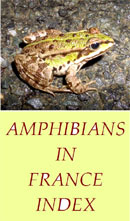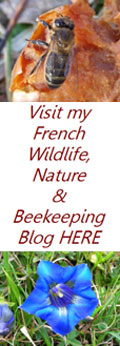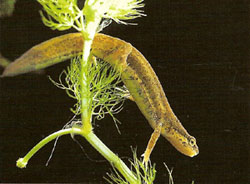
Palmate Newt Triturus,(Lissotriton), helveticus Triton Palmé
The Palmate Newt is the smallest European newt with a maximum length of 10 cm and gets its name from the fact that at breeding times, when in its aquatic phase, the male develops webs between its toes which disappear again when it changes back to terrestrial phase. The skin can be shades of olive green or brown, smooth in the aquatic phase but slightly granulated in terrestrial phase. A dark band runs back from the nose through the eye. Females and larvae can easily be confused with the Smooth Newt, the main criteria for distinguishing the two is that the Palmate Newt has an unspotted pink throat.

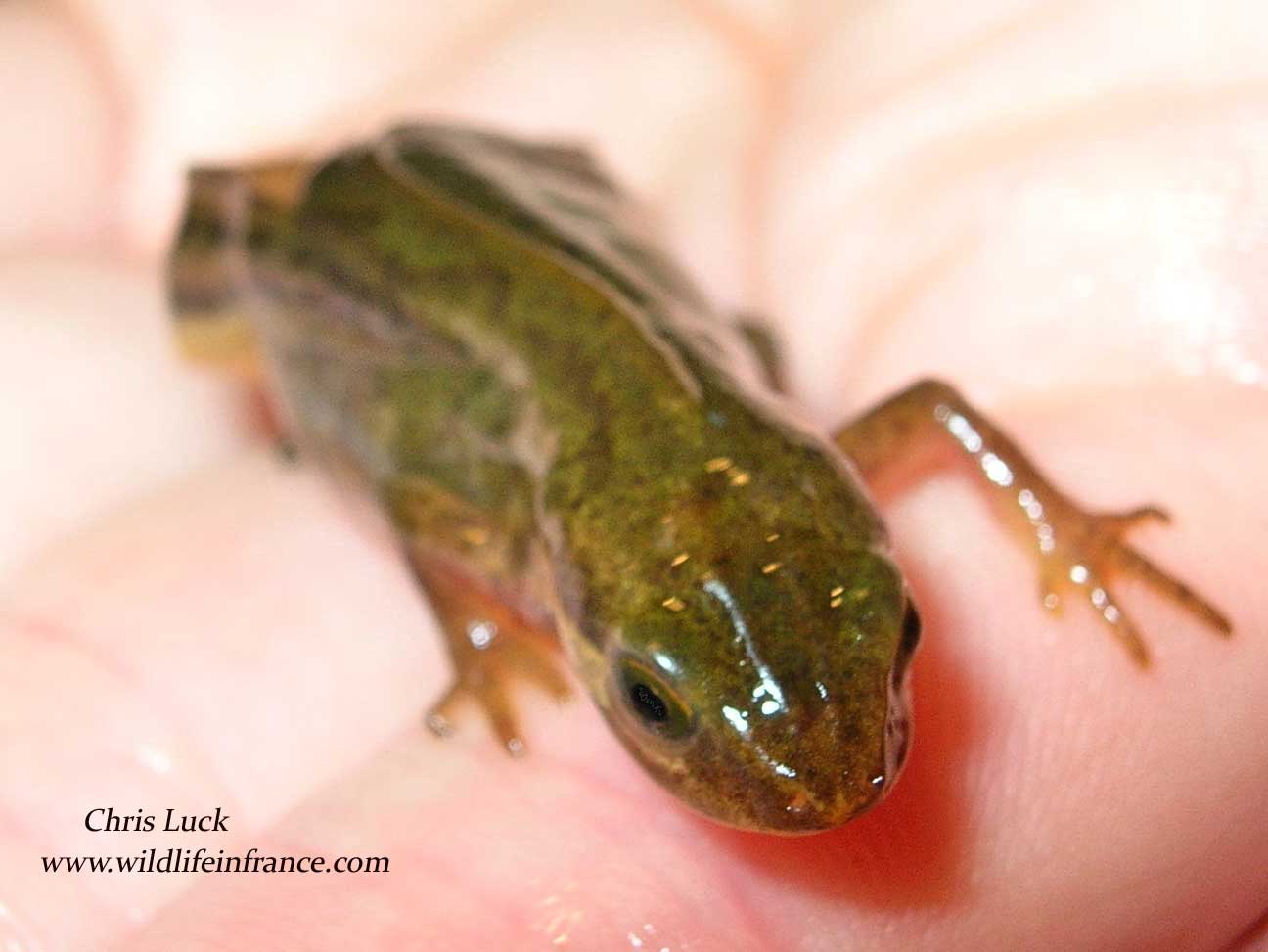
Photo above - baby Palmate newt
They can be found almost everywhere in France except the extreme south east and are considered to be relatively common, although they seem to require bushy cover near to the water where they breed. Almost all types of water are used, ponds, lakes, canals and slow flowing rivers and in the terrestrial phase they often remain within 150 metres of this, although they are capable of travelling several kilometres in search of a new breeding place. Prey is mainly small insects and their eggs. Hibernation, which is variable, can take place on land under natural debris or old tree stumps or in the south of France they may spend this period in the water.
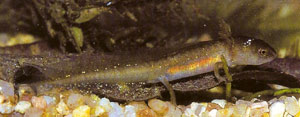
The period for reproduction is somewhat variable and can also occur twice a year in warmer regions, the female lays around 400 eggs a year over a period of time, these take 2 to 3 weeks to hatch and metamorphosis occurs about 3 months later. Sexual maturity is after 4 or 5 years and lifespan is 6 to 8 years.
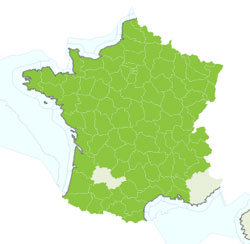
Although not in danger, mainly due to its ability to make use of almost any available source of water, overall there has been a decline in numbers and it benefits from full protection in all relevant EU Countries.


